Practice Tools
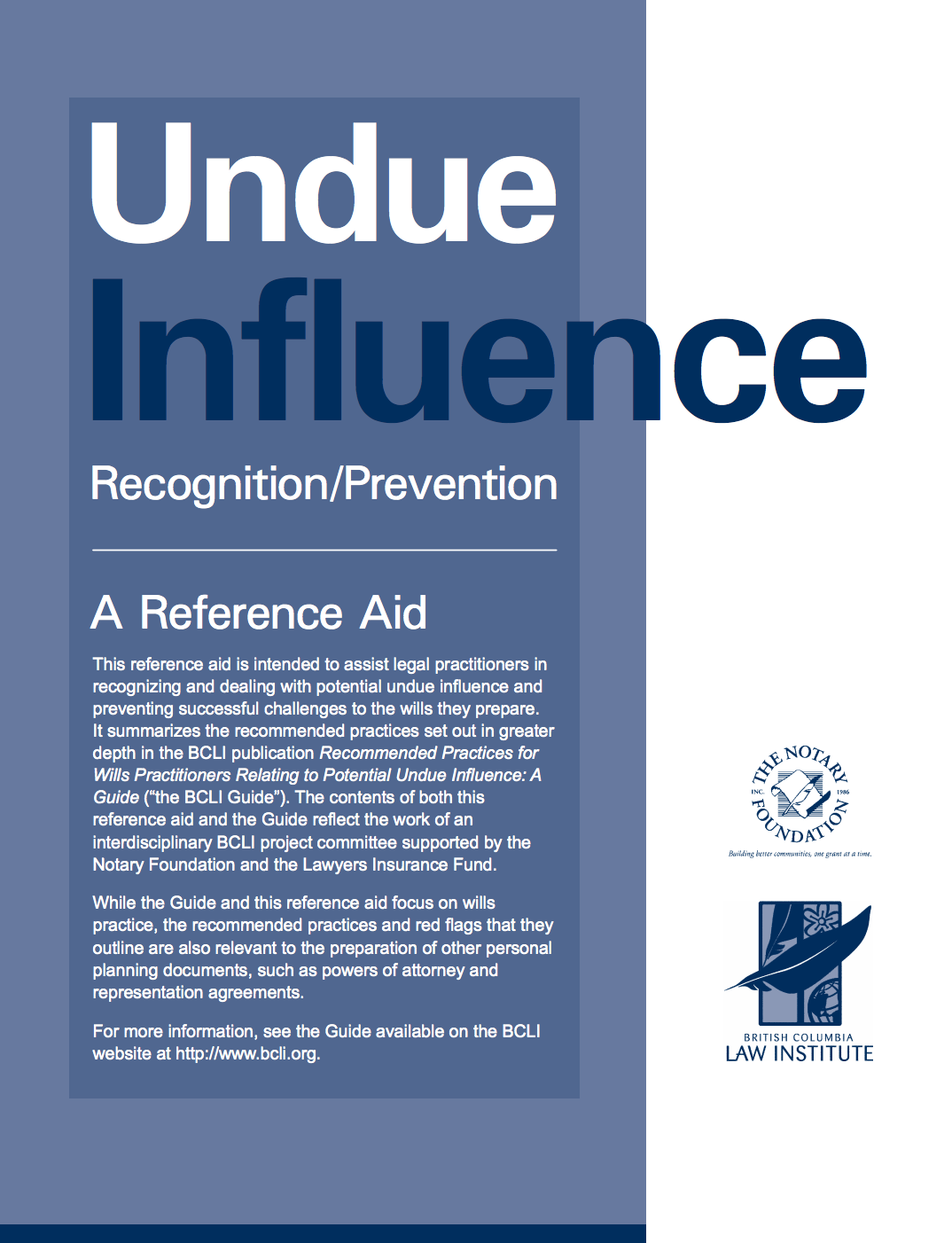 "This reference aid is intended to assist legal practitioners in recognizing and dealing with potential undue influence and preventing successful challenges to the wills they prepare. It summarizes the recommended practices set out in greater depth in the BCLI publication Recommended Practices for Wills Practitioners Relating to Potential Undue Influence: A Guide (“the BCLI Guide”). The contents of both this reference aid and the Guide reflect the work of an interdisciplinary BCLI project committee supported by the Notary Foundation and the Lawyers Insurance Fund."
"This reference aid is intended to assist legal practitioners in recognizing and dealing with potential undue influence and preventing successful challenges to the wills they prepare. It summarizes the recommended practices set out in greater depth in the BCLI publication Recommended Practices for Wills Practitioners Relating to Potential Undue Influence: A Guide (“the BCLI Guide”). The contents of both this reference aid and the Guide reflect the work of an interdisciplinary BCLI project committee supported by the Notary Foundation and the Lawyers Insurance Fund."
Source: British Columbia Law Institute
The following resource is part of the Family Violence Initiative, funded by the RCMP. Find similar tools by searching for the FVIF tag or consult the list of available resources.
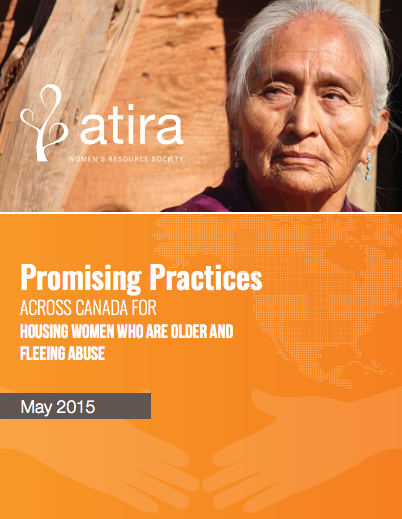 "Since 1987, Atira Women’s Resource Society has provided short-term and crisis housing for women fleeing violence. Atira now operates 18 residential programs across the Greater Vancouver Area identifying and responding to the varied and unique needs of women who are vulnerable and marginalized. Atira opened Ama House in South Surrey, BC in 2004, Canada’s first specialized transition house for women who are older. In anticipation of Ama turning 10 and identifying the need for program evaluation, Atira discovered that Ama House was still the only specialized transition house in Canada serving the needs of women who are older. This surprising discovery prompted the Promising Practices across Canada for Housing Women who are Older and Fleeing Abuse project (Promising Practices), a three-year collaborative project that involved women from across our vast country. Initially, the collaborative identified that while much has been written about violence against women and much about elder abuse, the abuse of women who are older is rarely examined. Understanding and supporting women who are older and fleeing violence is challenging work that demands knowledge of both women’s anti violence work and elder abuse. The network of women’s transition and safe houses and shelters holds great potential for adapting to meet the needs of women who are older; however, specific attention to their distinct needs, as identified by women who are older and by the women doing the work, is necessary. Promising Practices explores women’s lives across race, class, gender, sexual orientation and ability as well as from all walks of life, from small towns to large cities and includes the voices of First Nations, Métis and Inuit women, women of colour and immigrant women. It challenges assumptions about women who are older and warns against stereotyping. It also reflects women’s lived experiences, identifying what practitioners and women who are older say they require to meet their unique needs and circumstances."
"Since 1987, Atira Women’s Resource Society has provided short-term and crisis housing for women fleeing violence. Atira now operates 18 residential programs across the Greater Vancouver Area identifying and responding to the varied and unique needs of women who are vulnerable and marginalized. Atira opened Ama House in South Surrey, BC in 2004, Canada’s first specialized transition house for women who are older. In anticipation of Ama turning 10 and identifying the need for program evaluation, Atira discovered that Ama House was still the only specialized transition house in Canada serving the needs of women who are older. This surprising discovery prompted the Promising Practices across Canada for Housing Women who are Older and Fleeing Abuse project (Promising Practices), a three-year collaborative project that involved women from across our vast country. Initially, the collaborative identified that while much has been written about violence against women and much about elder abuse, the abuse of women who are older is rarely examined. Understanding and supporting women who are older and fleeing violence is challenging work that demands knowledge of both women’s anti violence work and elder abuse. The network of women’s transition and safe houses and shelters holds great potential for adapting to meet the needs of women who are older; however, specific attention to their distinct needs, as identified by women who are older and by the women doing the work, is necessary. Promising Practices explores women’s lives across race, class, gender, sexual orientation and ability as well as from all walks of life, from small towns to large cities and includes the voices of First Nations, Métis and Inuit women, women of colour and immigrant women. It challenges assumptions about women who are older and warns against stereotyping. It also reflects women’s lived experiences, identifying what practitioners and women who are older say they require to meet their unique needs and circumstances."
Français: Pratiques Prometteuses au Canada pour l'Hébergement des Femmes Aînées Victimes de Violence
Source: Atira Women's Resource Society
On the Atira Women's Resource Society page from the above link, you will also find Overall Evaluations of the Promising Practices Project, a National Inventory, the Emerging Best Practices - Services for Older Women Fleeing Abuse - Executive Summary and Evaluation Reports, in English and French.
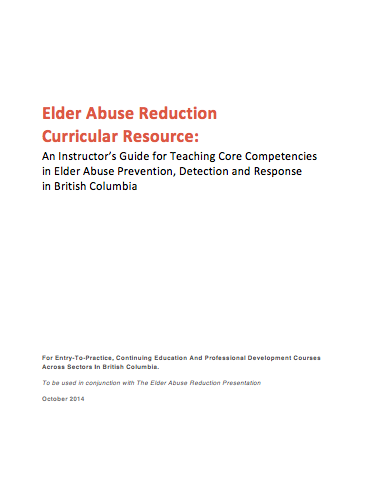 "The Elder Abuse Reduction Curricular Resource consists of an instructor’s guide and a presentation for teaching core competencies in elder abuse prevention, detection and response in British Columbia. Within the guide, instructors will find activities, assignments, online video links, readings and evaluation questions, as well as references to additional resources for some topic areas. An environmental scan was completed prior to completing the curricular resource. The full report from this scan and the associated Appendix A is also avaiable here. These materials were developed and assembled in 2014 by BCcampus as part of the Elder Abuse Reduction Education Project. This project was sponsored by the Ministry of Advanced Education in response to Together to Reduce Elder Abuse ̶ B.C.’s Strategy: Promoting Well-Being and Security for Older British Columbians."
"The Elder Abuse Reduction Curricular Resource consists of an instructor’s guide and a presentation for teaching core competencies in elder abuse prevention, detection and response in British Columbia. Within the guide, instructors will find activities, assignments, online video links, readings and evaluation questions, as well as references to additional resources for some topic areas. An environmental scan was completed prior to completing the curricular resource. The full report from this scan and the associated Appendix A is also avaiable here. These materials were developed and assembled in 2014 by BCcampus as part of the Elder Abuse Reduction Education Project. This project was sponsored by the Ministry of Advanced Education in response to Together to Reduce Elder Abuse ̶ B.C.’s Strategy: Promoting Well-Being and Security for Older British Columbians."
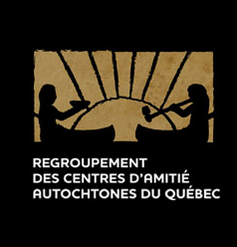 "The Regroupement des centres d’amitié autochtones du Québec was founded for and by urban Aboriginals who wanted to give themselves a provincial concertation, coordination and representation structure. Since 1976, the RCAAQ represents the interests of the Native Friendship Centres of Québec." Featuring various English & French resources produced by the team of the Regroupement des centres d’amitié autochtones du Québec, ranging from pamphletes to videos.
"The Regroupement des centres d’amitié autochtones du Québec was founded for and by urban Aboriginals who wanted to give themselves a provincial concertation, coordination and representation structure. Since 1976, the RCAAQ represents the interests of the Native Friendship Centres of Québec." Featuring various English & French resources produced by the team of the Regroupement des centres d’amitié autochtones du Québec, ranging from pamphletes to videos.
Source: Regroupement des centres d’amitié autochtones du Québec
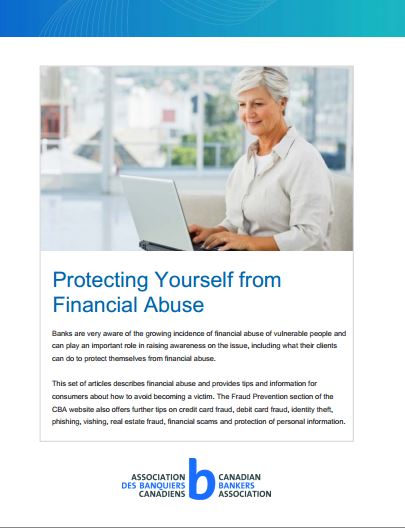
Source: Canadian Bankers Association
Page 8 of 15

















